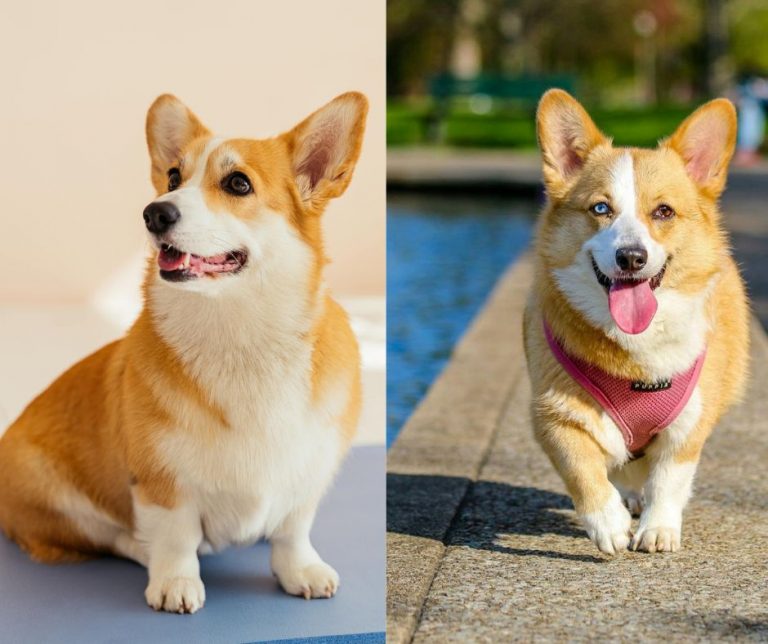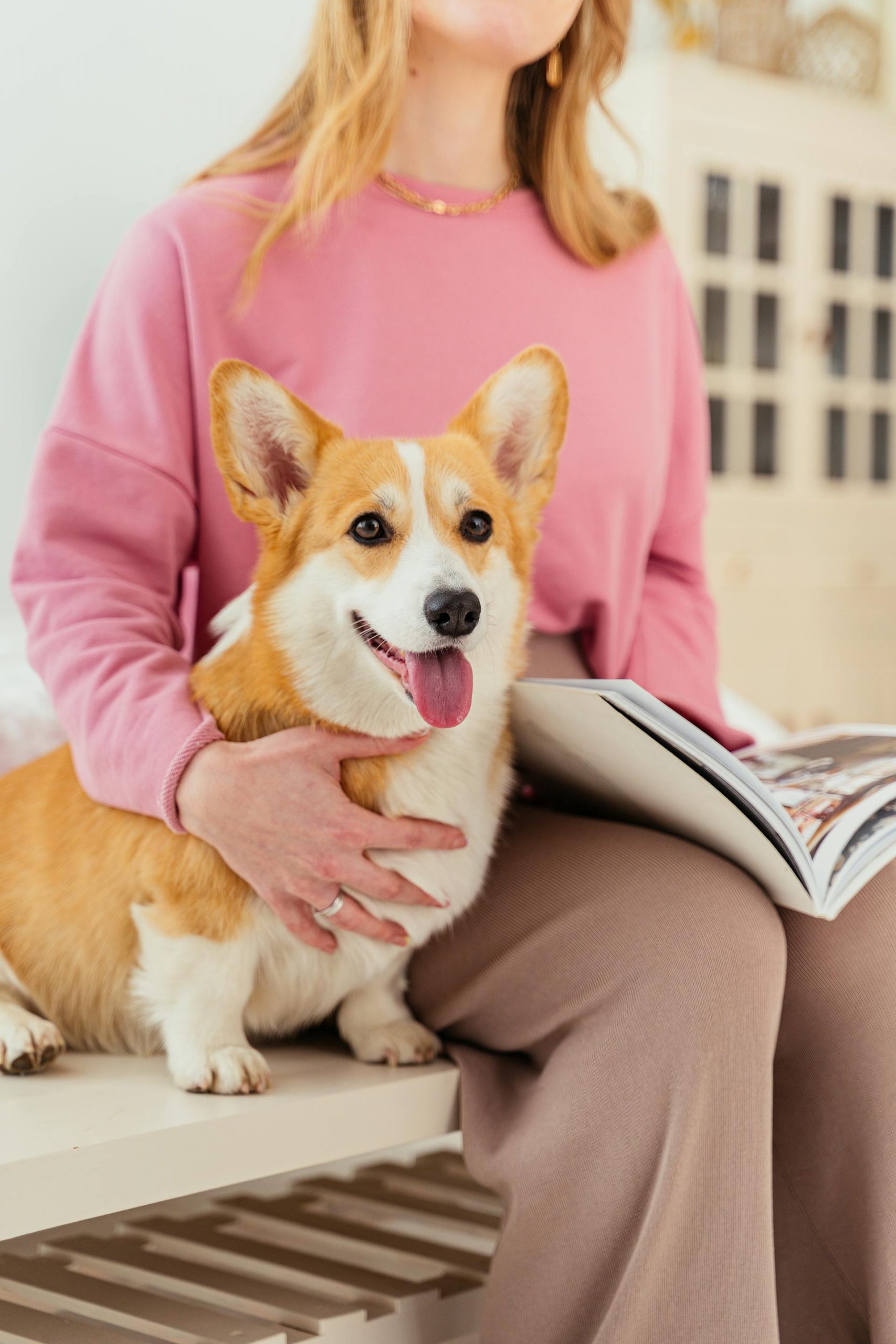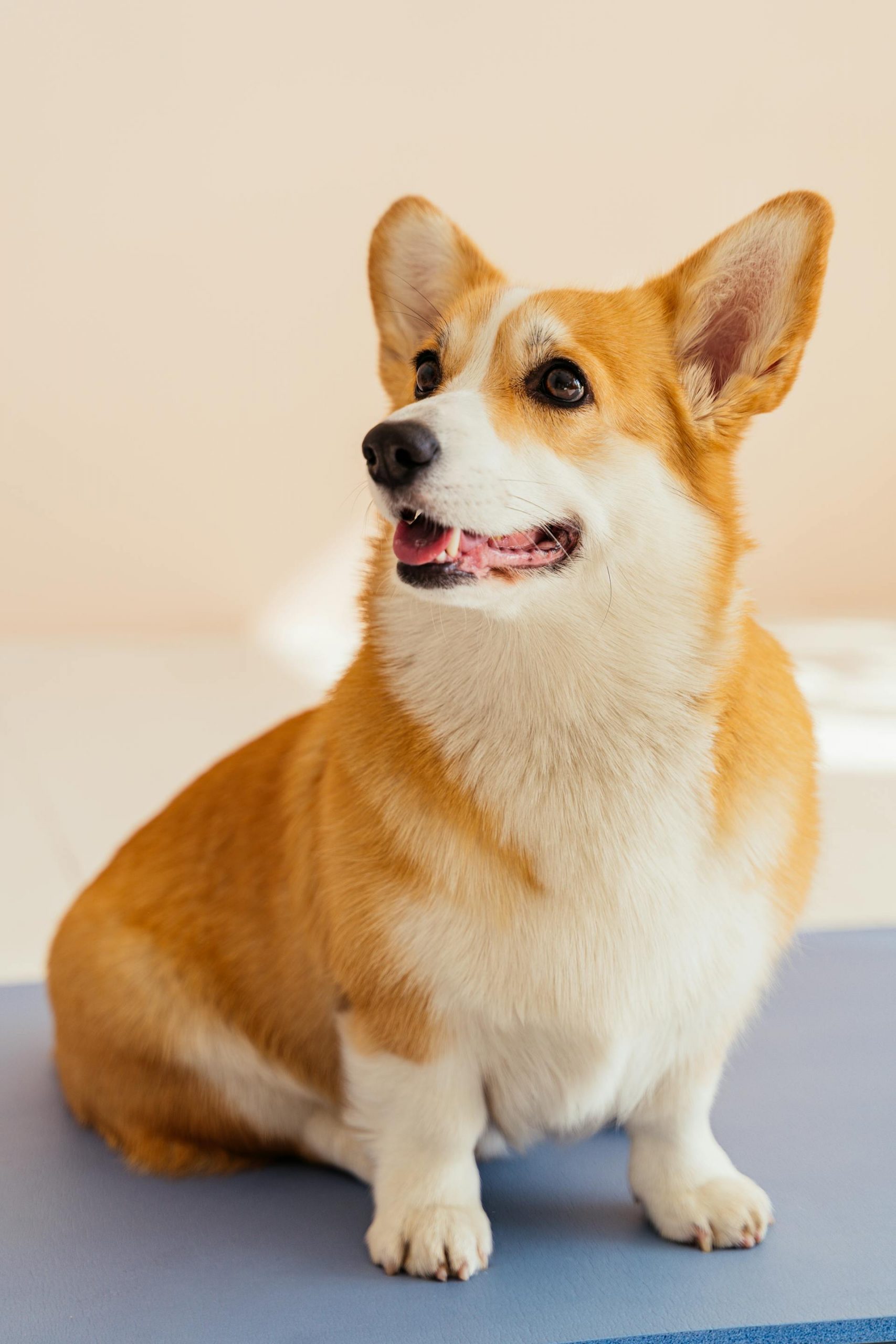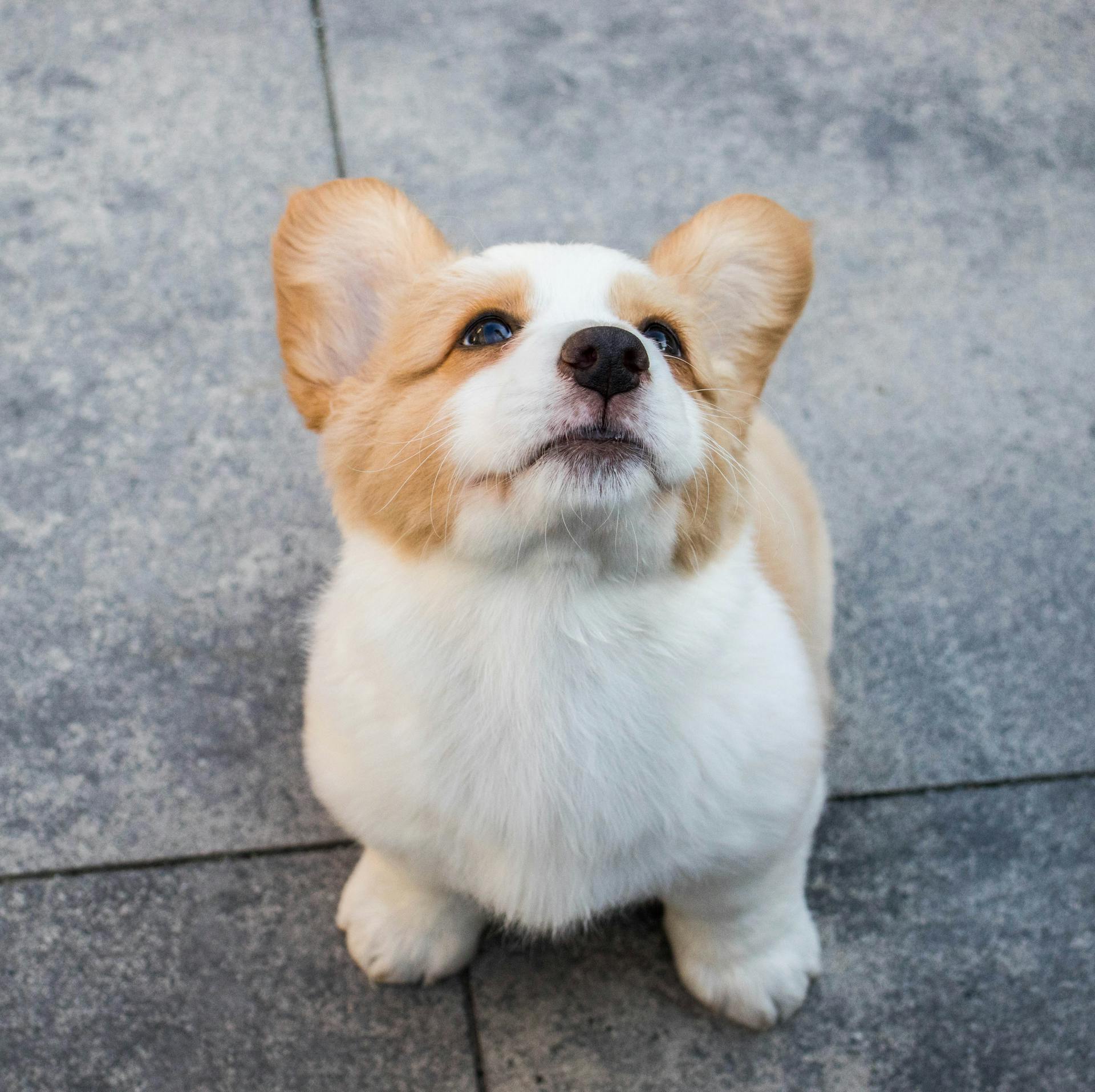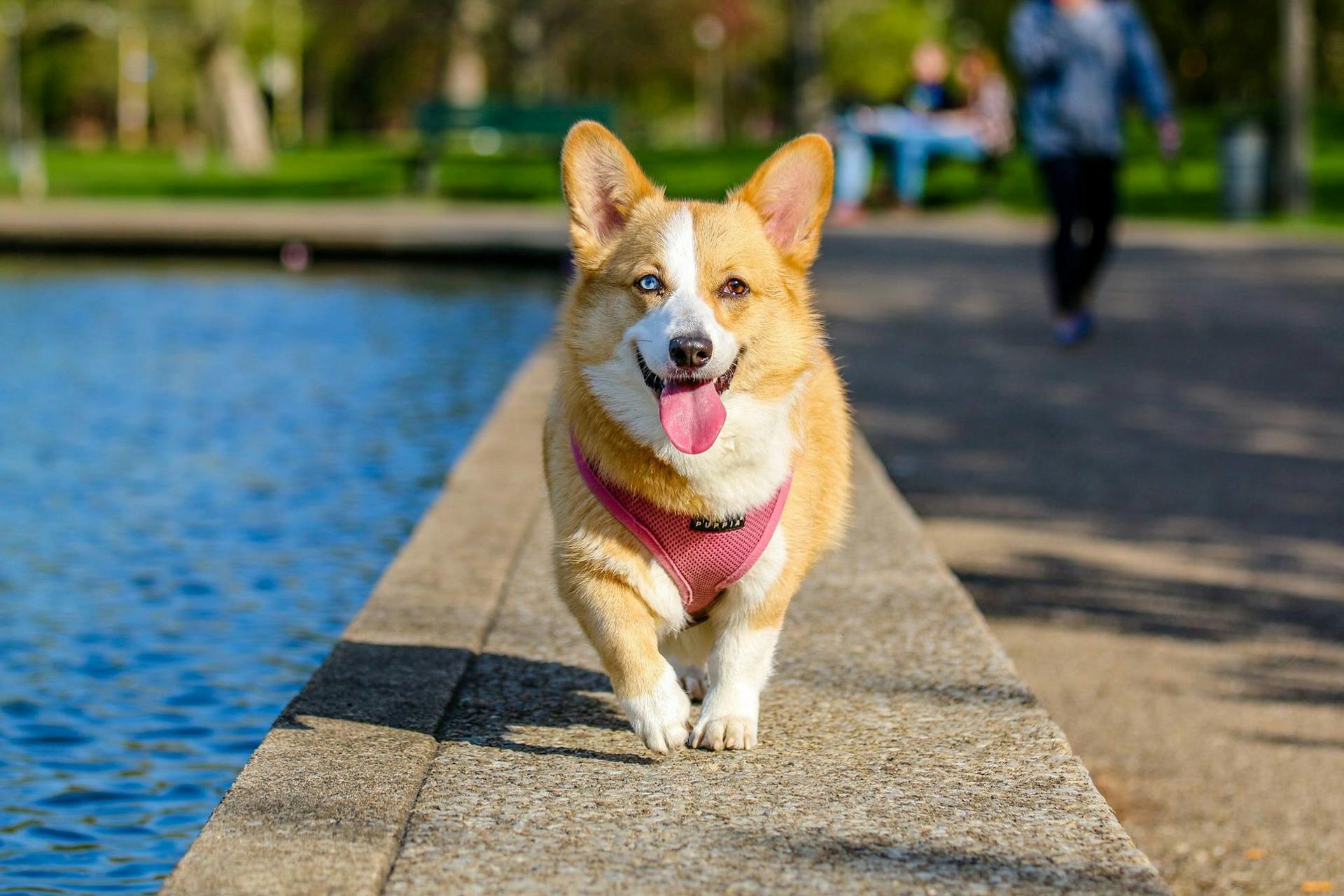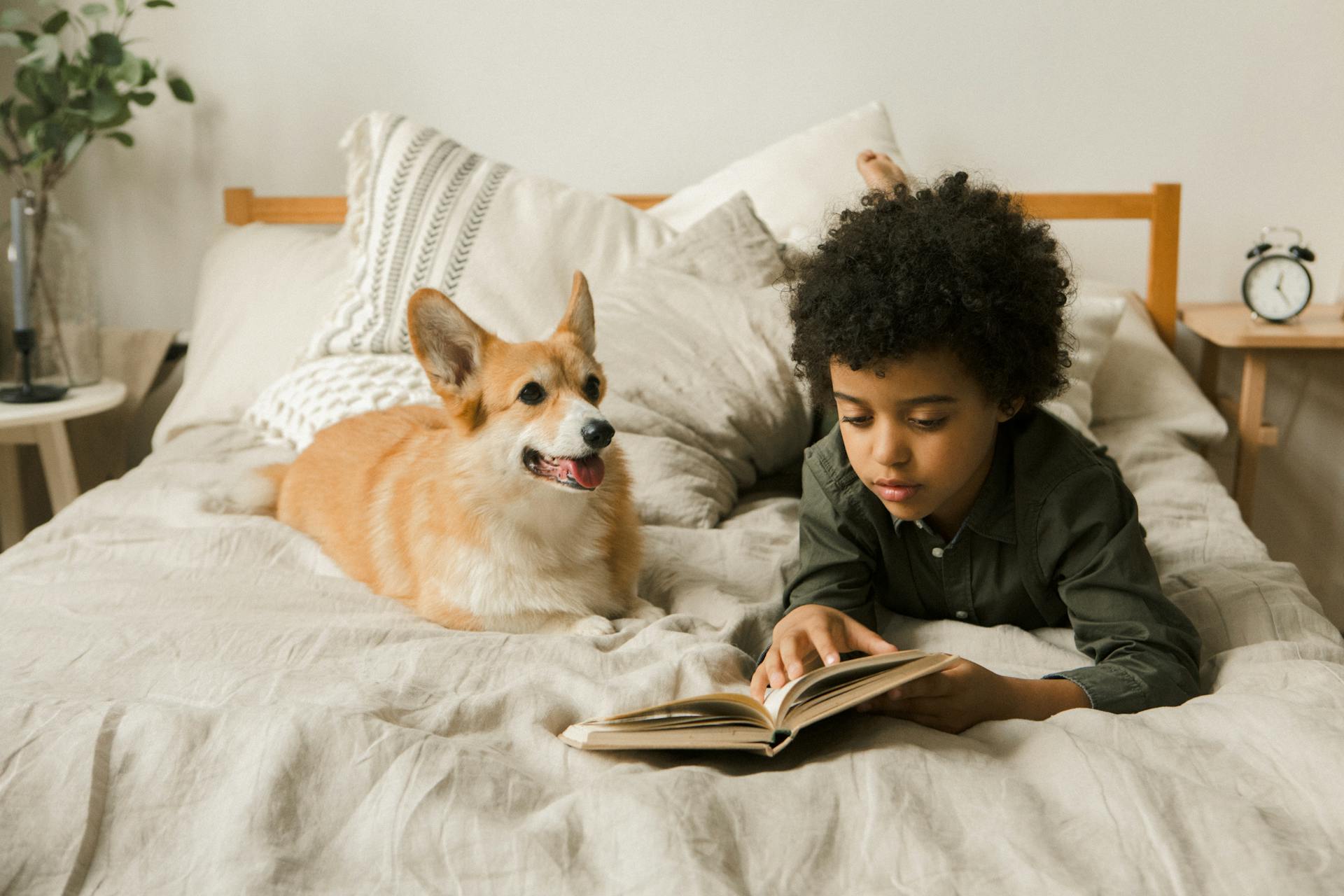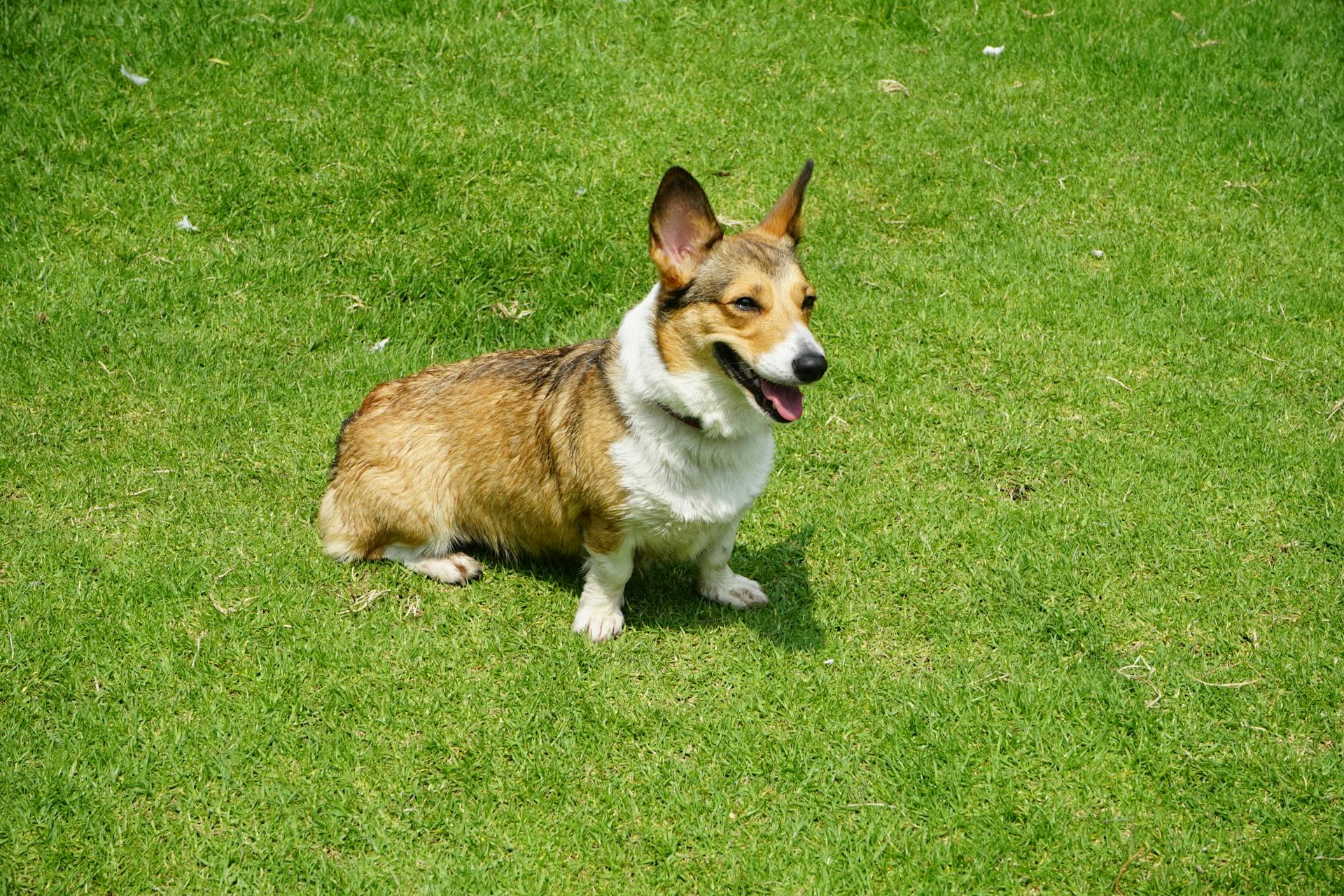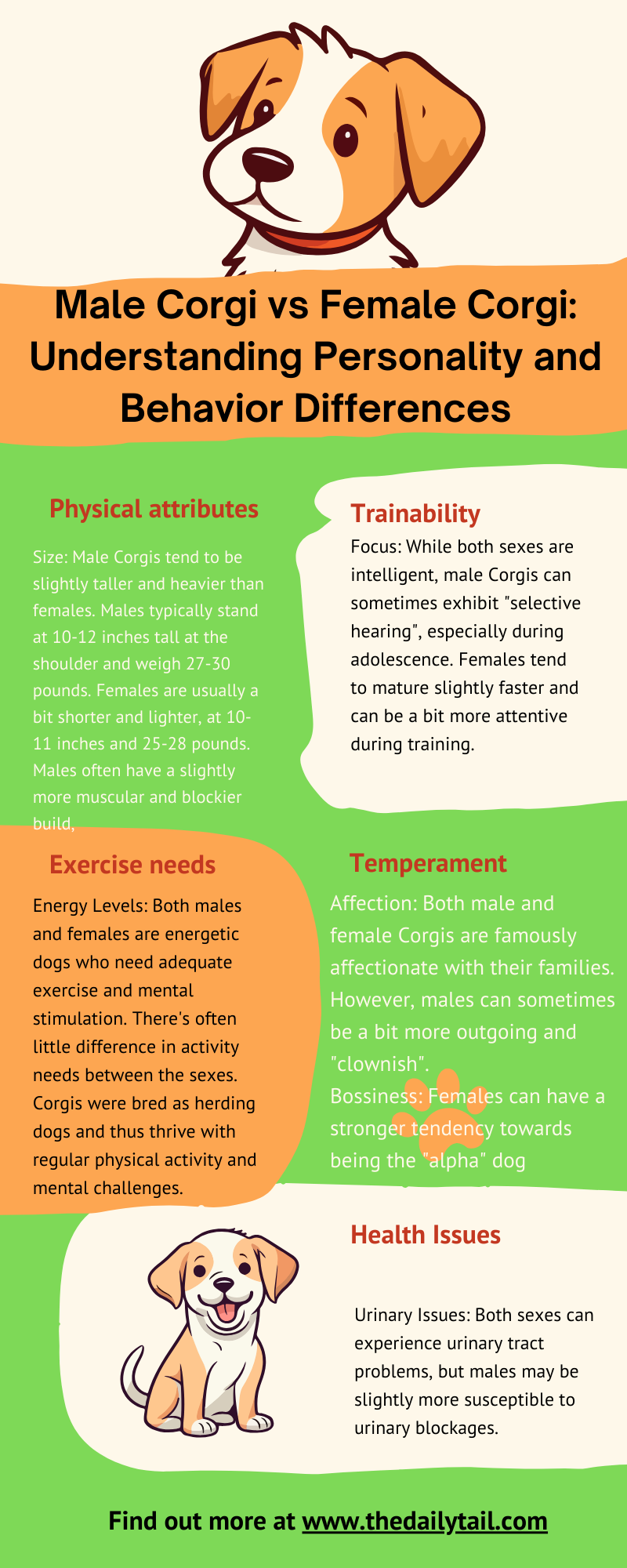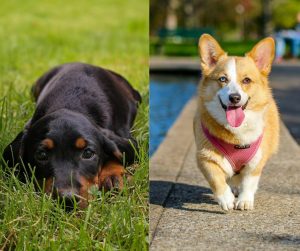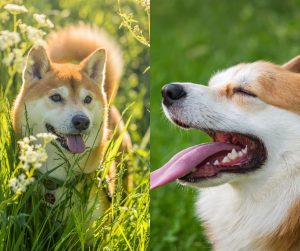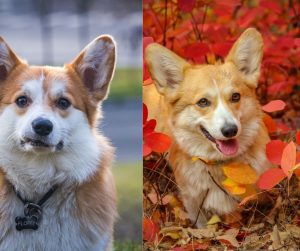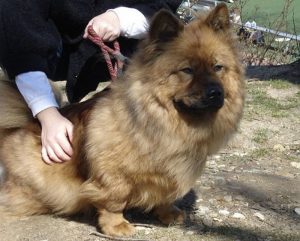When choosing a Corgi, prospective pet owners often weigh the differences between male and female dogs to find the right fit for their lifestyles.
Kings and Queens of the canine world… but do Corgi crowns fit differently on boys and girls? Those fluffy butts and foxy grins are adorable on both, but are male and female Corgis more different than you think?
Both genders share the breed’s hallmark traits: expressive faces, perky ears, and the famous Corgi waddle. However, subtle distinctions in their physical characteristics and temperaments can influence their compatibility with future families.
Male Corgis are generally larger than their female counterparts, with a tendency to be more laid-back, especially after being neutered. In contrast, female Corgis often present a more independent streak and can exhibit more assertive behavior. So, can you choose between male Corgi vs female Corgi?
These behavioral nuances might affect dog training approaches and the day-to-day interaction between Corgis and their human companions.
Key Takeaways
- Male and female Corgis differ in size and temperament, affecting their training and interaction with humans
- Physical and behavioral traits can influence the choice of a male or female Corgi for prospective owners
- Understanding the nuances between genders assists in harmonious Corgi-human relationships for a positive shared living experience
Physical Characteristics
In the world of Corgis, physical distinctions are mostly subtle yet notable, particularly when it comes to size and weight, as well as any distinctive features that one could spot with a keen eye.
Size And Weight
Male Corgis:
- Height: Typically range from 10 to 12 inches tall at the shoulder
- Weight: Often weigh a bit more, generally falling between 25 to 30 pounds
Female Corgis:
- Height: Usually stand around 10 to 12 inches tall as well
- Weight: They tend to be lighter, with their weight ranging from 24 to 28 pounds
While both genders share a similar height range, males usually carry a bit more weight, giving them a slightly more robust appearance. This difference isn’t drastic, but it’s enough that one might notice a male Corgi’s broader stature compared to a female’s slightly more petite frame.
Distinctive Features
Aside from the gender-specific characteristics, Corgis don’t have a wide variance in physical features based on their sex. They both exhibit the breed’s hallmark traits: the large, upright ears, the expressive eyes, and the double coat that comes in a variety of colors and patterns. The only true physical differences lie in their reproductive organs. Therefore, when one looks at a male or female Corgi, their gender identification mostly comes down to size, weight, and perhaps a touch of individual personality shining through their posture and demeanor.
Behavioral Traits
In considering the personality and training responsiveness of male and female Corgis, it becomes apparent that their behavior may vary due to individual temperament and upbringing rather than simply gender.
Social Behavior
Male and female Corgis show unique social tendencies influenced by their personalities.
Often, male Corgis are noted for their affectionate nature, typically being eager to please and following their pet parents loyally.
On the flip side, female Corgis might exhibit more independent behaviors and could occasionally come off as stubborn. However, both genders generally possess a friendly nature, making them sociable companions.
It’s essential to understand that while these traits can be common, they are not guaranteed—much depends on the individual dog.
Training And Obedience
When it comes to training and obedience, the intelligence of Corgis shines, regardless of gender.
Female Corgis sometimes mature faster, which could potentially make them easier to train.
Yet, both male and female Corgis respond well to commands if training is consistent and positive.
Neither gender has a monopoly on learning ability or dominance, and factors like mood swings and barking are more related to individual differences and the context of the situation than to whether the Corgi is male or female.
Health And Care
When it comes to the well-being of Corgis, they share certain health issues and require a dedicated routine of diet and exercise. It’s important to know what to watch out for and how to maintain their health through proactive care.
Common Health Issues
Corgis, both male and female, can be predisposed to a few health concerns that require a vigilant eye.
Hip dysplasia, a malformation of the hip joint, can affect these active pups, leading to discomfort and mobility issues. Another condition to watch for is degenerative myelopathy, a progressive disease of the spinal cord that can lead to paralysis.
Corgis can also suffer from cystinuria, a genetic defect that results in kidney stone formation, and intervertebral disc disease, which causes back pain, weakness, or paralysis due to disc herniation.
- Hip Dysplasia: Watch for signs of discomfort or difficulty moving
- Degenerative Myelopathy: Be aware of any dragging of the back legs
- Cystinuria: Look out for signs of urinary distress
- Intervertebral Disc Disease: Note any signs of back pain or difficulty with movement
Diet And Exercise
Corgis are prone to obesity due to their stature and love for food, so maintaining a balanced diet is key.
They need high-quality dog food that matches their age, weight, and activity level. A combination of dry and wet food can sometimes be a good approach.
Exercise is just as important; a Corgi needs daily activity to stay fit and burn off extra calories.
Whether it’s a game of fetch or a brisk walk, keeping them active not only helps prevent obesity but also keeps their mind stimulated.
Remember, exercise should be regular and tailored to the Corgi’s fitness level. Always give them plenty of attention during these moments—it strengthens the bond and keeps them mentally happy.
- Diet: Balanced, high-quality dog food; watch the portion sizes
- Exercise: Daily activity suited to their fitness level to prevent weight gain
- Attention: Engagement during exercise for a happy, healthy dog
Reproduction And Lifespan
When considering the differences between male and female Corgis, reproduction and lifespan are pivotal factors. They not only impact an owner’s decisions around breeding but also have long-term health implications for their furry companions.
Breeding Considerations
Breeding Corgis requires a responsible approach, understanding the health issues that can arise, and knowing the differences between the sexes.
Female Corgis go into heat twice a year, and this is when they are able to become pregnant. Pregnancy lasts about 63 days, and due to the breed’s physical structure, Corgis might need a c-section to deliver their puppies safely.
Male Corgis can be less complicated in this regard, as they do not have to go through heat cycles or pregnancy.
Health Issues Related to Breeding:
- Hip dysplasia: more commonly found in Corgis due to their long backs
- Von Willebrand’s Disease: a blood disorder that can complicate pregnancy
- Degenerative myelopathy: a progressive disease of the spinal cord that can be passed on genetically
Spaying And Neutering
Neutering a male Corgi not only prevents unwanted pregnancies but can also reduce the risk of certain health issues like testicular cancer.
Moreover, it may lead to a more relaxed demeanor, making them calmer and potentially easier to train.
Spaying a female Corgi eliminates the risk of uterine infections and reduces the risk of breast cancer.
Here’s how it affects their lifespan:
Neutered Male Corgis
- Typically live 1-3 years longer than unneutered males
- Less prone to roam and, therefore, less likely to get into accidents or fights
Spayed Female Corgis
- Can live 1.5 years longer on average than unspayed females
- Avoid the health risks associated with pregnancy and heat cycles
Human-Focused Interactions
When choosing a male Corgi vs female Corgi, potential dog owners often consider how these dogs will interact within a human-focused environment, particularly with children and as general companions. It’s essential to understand their social dynamics and capacity for forming strong, affectionate bonds with family members.
Corgis With Children And Families
Corgis are known for their sociable and affectionate nature, especially when they are part of a family setting.
They often exhibit protective behavior, desiring to safeguard their human “pack.”
Male corgi dogs are typically more outgoing, which may make them excellent playmates for children, given their energy levels and love for interaction.
It’s important, however, to supervise their playtime to ensure the safety of both the child and the corgi, as their herding instincts might kick in.
With female corgi dogs, a bit more patience may be necessary, as they can be more cautious around new faces.
Nevertheless, once a female corgi warms up to children and families, she forges a deep bond and showcases a tender, nurturing side.
Families should prioritize early socialization to foster positive interactions and to allow the corgi, regardless of gender, to grow comfortable around various people and social scenarios.
Corgi As Companions
Corgis flourish when they have the opportunity to be close companions and are not just considered pets. The bond they form with their owners often manifests in displays of love and affection.
Male corgis, specifically, are known to be laid back and eager to follow commands, making them discerning listeners and responsive friends. They may not always seek cuddles, but they show affection in their unique ways, such as being eager to please and engage with their owners.
Female corgis, while they can demonstrate an independent streak, are equally loving and loyal. They might show a level of stubbornness, but a female corgi’s companionship is marked by loyalty and an endearing quality of attachment to her owner.
Her protective nature means she might be more selective about the individuals she connects with, but this also makes her a devoted companion to those she trusts.
Corgi Lifestyle
When considering a Corgi puppy as a pet, it’s crucial to understand their lifestyle needs, which include staying active and the type of living environment they thrive in.
Activity Levels
Corgis, with their short legs and long bodies, are surprisingly energetic and require regular exercise to maintain their health. They are playful and often enjoy games like fetch or agility training that can help channel their energy.
A routine that includes at least one hour of exercise daily is ideal, helping to keep these dogs both physically and mentally stimulated.
Socialization is also key; Corgis love to socialize with both people and other dogs. Without sufficient activity, they may develop separation anxiety or become mischievous.
| Exercise Type | Benefits |
|---|---|
| Daily walks | Keeps them fit and satisfies their curiosity |
| Play sessions | Provides mental stimulation and strengthens their social skills |
| Training exercises | Enhances their obedience and ability to follow commands |
Living Environments
Corgis adapt well to various living environments but do best in homes where they can have space to move around.
An energetic Corgi puppy living in an apartment will need extra attention to their exercise needs, including more frequent walks and playtime to fend off restlessness.
These dogs value company and engage well with family activities, making them great companions.
They thrive on attention and may suffer from separation anxiety if left alone for long periods of time.
As such, their living environment should cater not only to their physical activity needs but also to their social and emotional wellness.
Male Vs. Female Corgi
Choosing between a male or female Corgi often comes down to personal preference, as each gender exhibits distinct physical traits and behaviors. Here’s an insight into what sets them apart and could influence your decision.
Physical Differences
Male Corgis typically have a taller and slimmer stature when compared to their female counterparts. These physical differences are important to consider for prospective dog owners, especially those concerned with space and the size of their pet.
Temperament And Behavior
When it comes to temperament, male Corgis are generally described as outgoing, playful, and crave more attention, often making them seem more sociable.
They may take a longer time to mature, which can affect their behavior and energy levels.
Females, on the other hand, can exhibit a more reserved and independent demeanor. They often show maturity faster, which might make them seem less needy and, sometimes, easier to train.
Differences in mood and behavior, such as aggression or marking behavior, are often linked to individual personality rather than gender alone. Being more aware and in tune with their specific needs can lead to a happier, more harmonious home for both the Corgi and the owner.
Breed Specific Information
Corgis, with their distinctive short stature and upbeat demeanors, are beloved by dog enthusiasts. Whether considering a Pembroke or a Cardigan Corgi, understanding the breed’s heritage and unique characteristics is crucial for prospective owners.
Corgi Types
The Corgi breed comes in two main types: the Pembroke Welsh Corgi and the Cardigan Welsh Corgi. Often confused due to their similar names and physical traits, these two breeds have distinct genes and characteristics.
- Pembroke Welsh Corgis are known for their outgoing and affectionate nature. They typically do not have a tail and are slightly smaller than their Cardigan counterparts
- Cardigan Welsh Corgis sport a long tail and are generally more reserved but just as intelligent. Both types excel in herding due to their instinctive intelligence
When it comes to trainability, Corgi dogs respond well to positive reinforcement. Breeders and corgi owners alike emphasize the importance of a consistent training regimen to capitalize on their eagerness to learn.
History And Origin
The lineage of both Corgi breeds is steeped in the pastoral lifestyles of Wales.
- Cardigan Welsh Corgis boast an ancient lineage. They have ties to Scandinavian herding dogs from over a thousand years ago
- Pembroke Welsh Corgis have a slightly more recent history. People believe they were introduced by Flemish weavers to Wales in the 10th century
Both variations of this dog breed gained prominence through their indispensable role in herding cattle. They showcased their intelligence and agility. Recognized by the American Kennel Club, they continue to capture hearts with their blend of historical significance and modern-day companionable traits.

